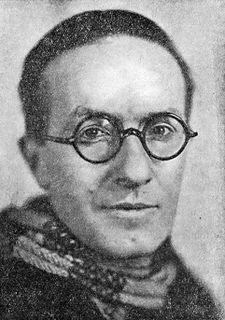A Quote by Haruki Murakami
Hundreds of butterflies flitted in and out of sight like short-lived punctuation marks in a stream of consciousness without beginning or end.
Related Quotes
Consciousness... does not appear to itself chopped up in bits. Such words as 'chain' or 'train' do not describe it fitly as it presents itself in the first instance. It is nothing jointed; it flows. A 'river' or a 'stream' are the metaphors by which it is most naturally described. In talking of it hereafter, let us call it the stream of thought, of consciousness, or of subjective life. Source of the expression 'stream of consciousness'.
It is the same India which has withstood the shocks of centuries, of hundreds of foreign invasions of hundreds of upheavals of manners and customs. It is the same land which stands firmer than any rock in the world, with its undying vigour, indestructible life. Its life is of the same nature as the soul, without beginning and without end, immortal; and we are the children of such a country.
The moment of truth, the sudden emergence of a new insight, is an act of intuition. Such intuitions give the appearance of miraculous flushes, or short-circuits of reasoning. In fact they may be likened to an immersed chain, of which only the beginning and the end are visible above the surface of consciousness. The diver vanishes at one end of the chain and comes up at the other end, guided by invisible links.
I think it's science and physics are just starting to learn from all these experiments. These experiments have been carried out hundreds and hundreds of times in all sorts of ways that no physicist really questions the end point. I think that these experiments are very clearly telling us that consciousness is limitless and the ultimate reality.
She liked being reminded of butterflies. She remembered being six or seven and crying over the fates of the butterflies in her yard after learning that they lived for only a few days. Her mother had comforted her and told her not to be sad for the butterflies, that just because their lives were short didn't mean they were tragic. Watching them flying in the warm sun among the daisies in their garden, her mother had said to her, see, they have a beautiful life. Alice liked remembering that.
I have a similar affection for the parenthesis (but I always take most of my parentheses out, so as not to call undue attention to the glaring fact that I cannot think in complete sentences, that I think only in short fragments or long, run-on thought relays that the literati call stream of consciousness but I still like to think of as disdain for the finality of the period).





































